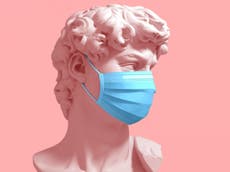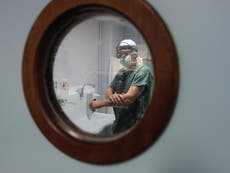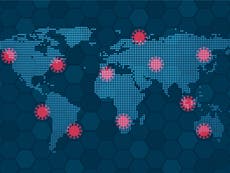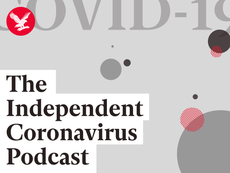If coronavirus can crush even well-equipped healthcare systems, imagine what could happen in Gaza
How can we self-isolate in one of the most densely populated places on Earth? How can we implement essential hygiene when 96 per cent of the Strip’s water is undrinkable?

The atmosphere in Gaza is always febrile, but I’ve rarely witnessed anything like this. Fear has torn through ordinary life here: cafes closed, weddings cancelled, markets shut down. Friends and colleagues speak of little else. While 2 million people wait in dread, those who can are working tirelessly to avert disaster.
We’ve been watching as Covid-19 has spread around the globe, overwhelming well-equipped healthcare systems. Then, a week ago, we received devastating news: the first confirmed cases of coronavirus in Gaza. Two men, recently returned from Pakistan, tested positive after arriving in Gaza via the Rafah crossing with Egypt. More than 2,000 people are now in quarantine, with 12 cases confirmed. Meanwhile, authorities, NGOs and health workers are in a race against time to contain the spread.
We can’t do it alone. We need international support to help contain the virus, equip our medical teams and end the human rights violations that have undermined Gaza’s ability to face this fresh emergency.
The Palestinian health sector in which I have worked – first as a nurse, then in public health – for 25 years teeters on collapse. Hospitals and clinics have borne the brunt of three major military bombardments between 2008 and 2014, and faced massive influxes of casualties, including 8,000 gunshot wounds inflicted by Israel during the “Great March of Return” protests since 2018. It has weathered the suffocating movement restrictions of Israel’s illegal 13-year blockade.
Beyond the dire state of its healthcare system, Gazan public health is abysmal. With unemployment and poverty rates above 50 per cent, food insecurity is rife. Chronic malnutrition has left one in 10 Gazan children stunted in their growth, and compromised in their immune systems.
I fear Covid-19 could be the final blow. We lack the infrastructure, essential equipment, drugs, supplies and human resources needed to treat a widespread outbreak. In the entirety of the Strip, there are just 78 intensive care (ICU) beds; just 63 ventilators. In February, 39 per cent of all essential medicines and 31 per cent of disposables and were at “zero stock”, meaning less than a month’s worth on shelves.
Last night I barely slept. How can we self-isolate in one of the most densely populated places on Earth? How can we implement essential hygiene when 96 per cent of the Strip’s water is undrinkable? And should containment fail, how many of Gaza’s frontline medics will fall sick, with so little personal protective equipment (PPE)?
I fear for older people in our society. Gaza households are often large, with young and old under the same roof, increasing their risk of contact and infection. Our elderly are at additional risk from a high prevalence of underlying chronic health conditions such as diabetes, lung disease and heart disease.
At Medical Aid for Palestinians (MAP), where I work, we are striving with our partners to contain the outbreak and prevent a nightmare scenario. We have released hygiene kits to Palestinians placed in quarantine, as well as essential drugs, medical consumables and sterile gowns. We are procuring PPE, disinfectant and essential drugs for large-scale release.
Yet we cannot hold back the tide alone. Gaza needs international support for testing, quarantine and essential sanitation supplies. Foreign governments should be supplying medical equipment, foreign doctors medical training. The UN has appealed for $34m (£28m) to respond to coronavirus in the Occupied Palestinian Territory (OPT), and I hope the UK will respond.
In Gaza, the artificial nature of this unfolding emergency has been decades in the making. Perpetual military occupation and unrelenting closure have strangled the development of Palestinian institutions, including our health system. Long before coronavirus arrived in Gaza, the UN special rapporteur on human rights in the OPT decried Israel’s “profound breach” of Palestinians’ right to health.
The international community’s response to Gaza’s plight should consider the root causes of our ill-preparedness, and seek to address them. It must urge Israel, Egypt and all duty bearers to adhere to their international legal obligations. In particular, Israel must be reminded of its duty as an occupying power to deploy all means to combat the spread of contagious diseases, and lift the blockade.
In a pandemic of this magnitude, the world is a single community. Have we ever all been so isolated, but so together? Public displays of admiration for health workers are wonderful, but we need more. Only through solidarity with the world’s most vulnerable will we withstand this unprecedented global challenge.
Fikr Shalltoot is director of programmes in Gaza for Medical Aid for Palestinians







Join our commenting forum
Join thought-provoking conversations, follow other Independent readers and see their replies